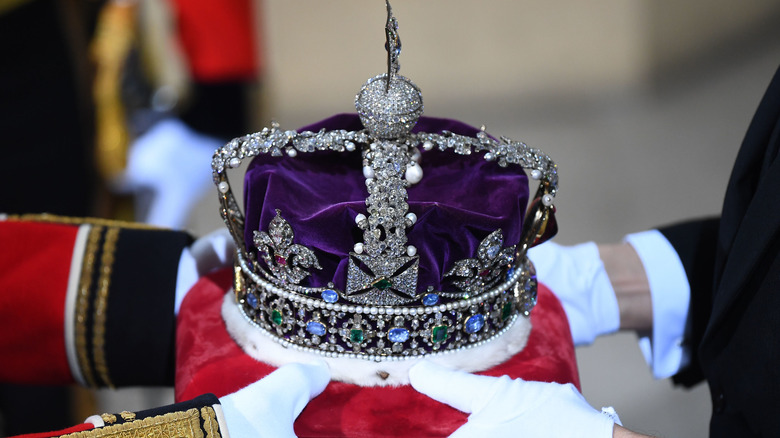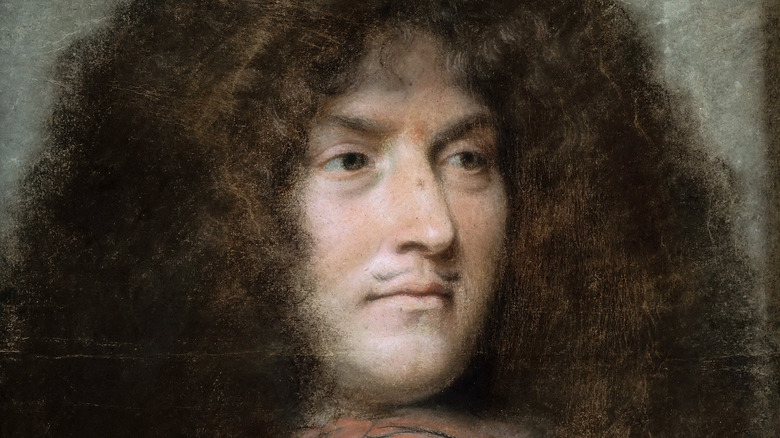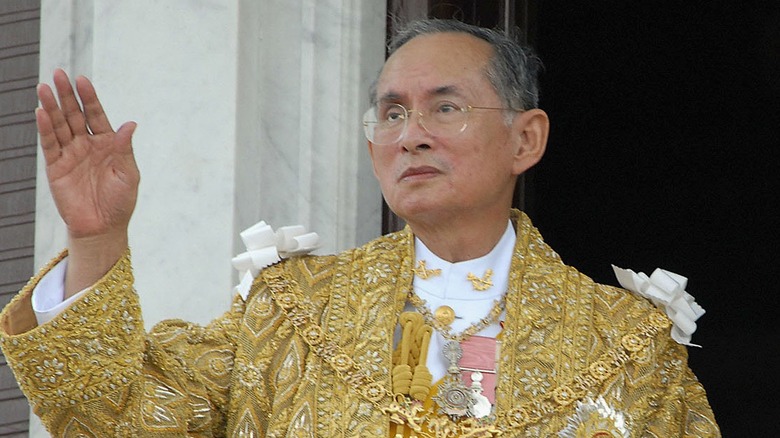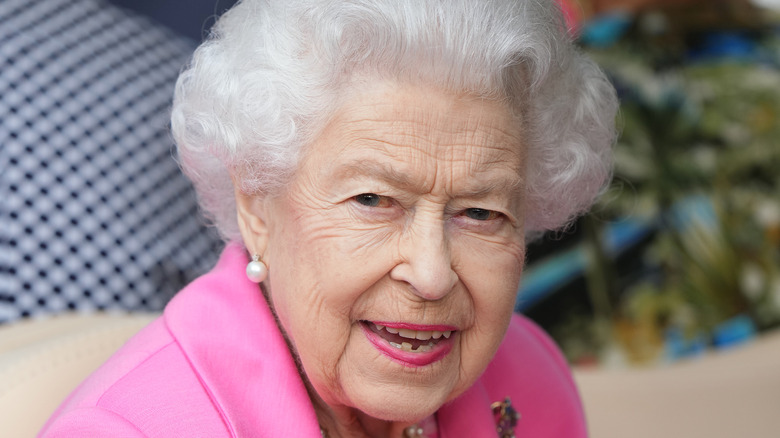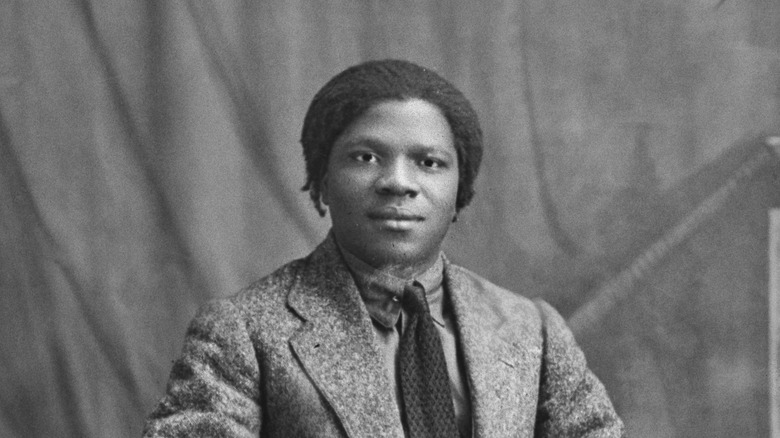Monarchs Who Have Celebrated A Platinum Jubilee
Anniversaries are a time for celebration and reflection. They're an acknowledgment of the weight of time and what we do with the limited amount we are given. Often these anniversaries are celebrated. Birthdays are marked with a party, food, and presents. Wedding anniversaries are celebrated with vacations and personal gifts.
Some anniversaries are more important than others. When it comes to birthdays, Latin culture celebrates the quinceanera while Americans celebrate "Sweet 16." Each year of high school or college successfully completed confers a new title. As for wedding anniversaries, each year has its own name and associated gifts.
But among the monarchs of the world, a different anniversary is celebrated: years on the throne. In the United Kingdom, there is a nationwide party called a jubilee to mark the anniversary of a monarch's reign after 25, 50, and 60 years. These jubilees are known as silver, gold, and diamond jubilees. This year marked the first time a British monarch has reigned for 70 years (platinum jubilee), but she's not the first monarch in the world to achieve such a feat.
King Louis XIV (1643–1715, 72 years)
Louis Bourbon got a head start on his platinum jubilee by inheriting the crown of France at the tender age of 4. France wasn't in great shape at that time, but his mother and godfather successfully steered the ship of state such that by the time Louis took full control of the country, it was one of the most powerful on the continent (via History).
As king of France, Louis XIV ruled with absolute authority. He took the sun as his personal symbol to imply that all things revolved around him and that he was the source of all power in France. To consolidate his power, he had new royal palaces constructed outside of Paris in Versailles and forced the nobility to attend to him there, away from their centers of power and securely under his thumb (via Château de Versailles).
To history, Louis left a mixed legacy. On the one hand, he was a patron of the arts and helped grow the French industry. On the other, he was a vehement enemy of Protestants and persecuted them within his borders. He embroiled the country in costly wars that left the state coffers depleted. His long rule also meant that he outlived both his son and grandson, passing his title to his 5-year-old great-grandson (via the University of Kentucky).
King Bhumibol (1946–2016, 70 years)
On the face of things, Bhumibol Adulyadej was an unlikely king. He was born in the U.S. (his father was enrolled in Harvard at the time), he wasn't the oldest son, and his father wasn't the king. The throne of Thailand passed to him from his brother (who came upon it after a succession crisis) after the young king was found shot to death in his bed under mysterious circumstances (via Britannica).
Bhumibol spent most of his youth abroad and inherited the crown of a country in transition and turmoil. Fourteen years before he took the throne, a revolution had tossed out the absolute monarchy of past kings and replaced it with a constitutional monarchy. Despite the turbulence of post-war Asia, Bhumibol restored some of the power of the throne and managed to bring dignity and reverence back to the royal family (via Council on Foreign Relations).
His time as king was marked by rebellion and change. For most of his rule, he was the legitimacy behind a string of oppressive military governments. Although the military at times ruled with an iron fist, Bhumibol's savvy diplomacy kept Thailand free from the communist influence overtaking much of southeast Asia at the time.
Queen Elizabeth II (1952–Present, 70 years)
Like King Bhumibol, Elizabeth Windsor had no notion that she would one day be queen. Her father was the younger brother of the heir presumptive, who abdicated the throne less than a year after he became king. Although she may not have been aware of her destiny, those around her had been subtly preparing her for the job for years (via BBC). Queen Elizabeth II's role is largely ceremonial. By tradition, she doesn't take part in political disputes. Although all laws passed by Parliament must be approved by her, no British monarch has refused to assent to a law for over 300 years.
Perhaps her greatest legacy is the transformation of the British Empire. Whereas most of the colonial empires of Europe lost their holdings after World War II, Elizabeth II presided over its metamorphosis into the Commonwealth, a collection of 54 countries made up of 2.5 billion people (via Reuters).
A looser definition
The aforementioned monarchs deserve a special place in history for being sovereign (lords of independent nations) and their longevity. But they aren't the longest-reigning monarch by at least a decade. That honor goes to Sobhuza II. He came to the throne of Swaziland (now Eswatini) when he was five months old in 1899 and ruled until 1982 — over 82 years, putting him ahead of Louis XIV by 10 years (via BlackPast). So why isn't he on the same list as the other monarchs? At the time Sobhuza became king of the Swazi, Swaziland was a territory of Great Britain and didn't achieve its independence until 1968. By the standards used for the previous monarchs on our list, he was only the monarch of a sovereign country for 14 years.
Over the course of this life, Sobhuza II was a supporter of polygamy and had up to 500 children. He died in 1982 at 83 years old.
